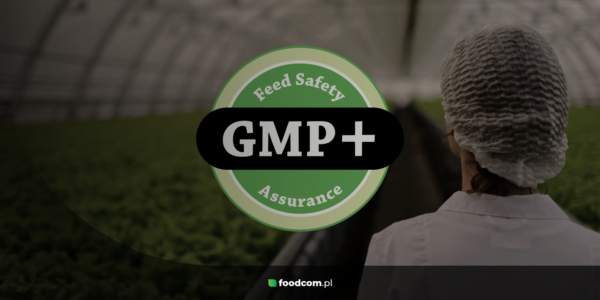- BRC Agents & Brokers certification ensures the highest standards of quality and safety in product brokerage and distribution.
- The implementation of certification optimises operational processes, increasing efficiency and reducing costs.
- BRC Agents & Brokers opens access to new international markets where quality requirements are key.
- Certification supports sustainability, promoting responsible resource management and minimising environmental impact.
The BRC Agents & Brokers certification is an internationally recognised standard, ensuring the highest quality and safety in the brokering and distribution of food products, packaging and consumer goods. The standard is designed for companies acting as intermediaries between producers and customers. For many companies, this certification is a key tool in managing risk and improving process transparency.
History and development of BRC Agents & Brokers certification
The BRC (British Retail Consortium) standard originated in the UK in the 1990s, initially as a tool to ensure safety in retail. Over time, in response to increasing market demands, a special version of the certification dedicated to agents and distributors was developed. In 2014, the BRC Agents & Brokers standard was introduced, which focuses on import, export, brokering and wholesale companies.
BRC Agents & Brokers certification – scope
The BRC Agents & Brokers certification covers a wide range of activities with an emphasis on the safety and quality of goods. The standard requires companies, to implement advanced risk management and quality monitoring systems. The main aspects of certification are:
Quality management – certification mandates rigorous control processes throughout the supply chain. Companies must document effective monitoring systems to assess suppliers and eliminate potential risks.
Product safety – an important element of the standard is the identification and minimisation of risks. Advanced hazard analysis procedures (HACCP) must be implemented to effectively control critical points in the supply process.
Transparency of processes – companies are required to be fully transparent in their operations, from the selection of suppliers to the delivery of products to the market. In doing so, they strengthen the trust of customers and business partners.
BRC Agents & Brokers certification process
The process of achieving BRC Agents & Brokers certification involves several key stages. First, the company implements a management system in line with the requirements of the standard. It then conducts an internal audit to help assess readiness for certification, followed by an external audit by the certification body to assess compliance with BRC requirements. After passing the audit, the company is awarded the certificate, which must be renewed annually.
Benefits of BRC Agents & Brokers certification
Obtaining BRC Agents & Brokers certification brings numerous benefits to companies: operational and image benefits:
Increased customer and partner confidence – BRC certification is proof of adherence to the highest standards, this gives greater confidence from customers and business partners.
Access to new markets – BRC Agents & Brokers opens the door to global markets where quality requirements are increasing. Certified companies have the opportunity to establish cooperation with international partners.
Process optimisation – the implementation of BRC certification requires continuous analysis and improvement of internal processes. This allows companies to optimise their operations, translating this into greater operational efficiency and cost reduction.
Risk minimisation – BRC Agents & Brokers certification helps companies manage risk by identifying potential risks in the supply chain and enabling their elimination. This provides assurance that every product a company supplies to the market meets the highest standards.
BRC Agents & Brokers and sustainability
BRC Agents & Brokers certification is not only about safety and quality, but also about promoting sustainability. Companies must demonstrate a responsible approach to resource management. This includes minimising waste, saving energy and reducing emissions. The company contributes to more sustainable practices by being part of global trends to minimise the negative impact on the environment.
Implementation of BRC Agents & Brokers certification at Foodcom S.A.
As one of the leading players in the industry, Foodcom S.A. decided to implement BRC Agents & Brokers certification. The aim was to raise the standards of operations and increase transparency in the supply chain. This enables the company to manage its processes even more effectively, which contributes to increasing customer confidence and strengthening its position in international markets. Foodcom S.A. regularly conducts audits and improves its procedures, ensuring that the products supplied meet all quality and safety requirements.
The impact of BRC Agents & Brokers certification on the brokerage industry
More companies in the brokerage and distribution industry are choosing to implement BRC Agents & Brokers certification. This contributes to raising quality and safety standards in the global supply chain. The implementation of such a standard motivates other companies to improve their operations and adhere to rigorous standards. This has a positive impact on the industry as a whole.
The future of BRC Agents & Brokers certification
With ever-increasing consumer and regulatory demands, BRC Agents & Brokers certification will become increasingly important. Companies such as Foodcom S.A. that hold this standard have gained a competitive advantage. Commitment to product safety and quality translates into long-term success in the market. Further development of the standard is expected in the future.









